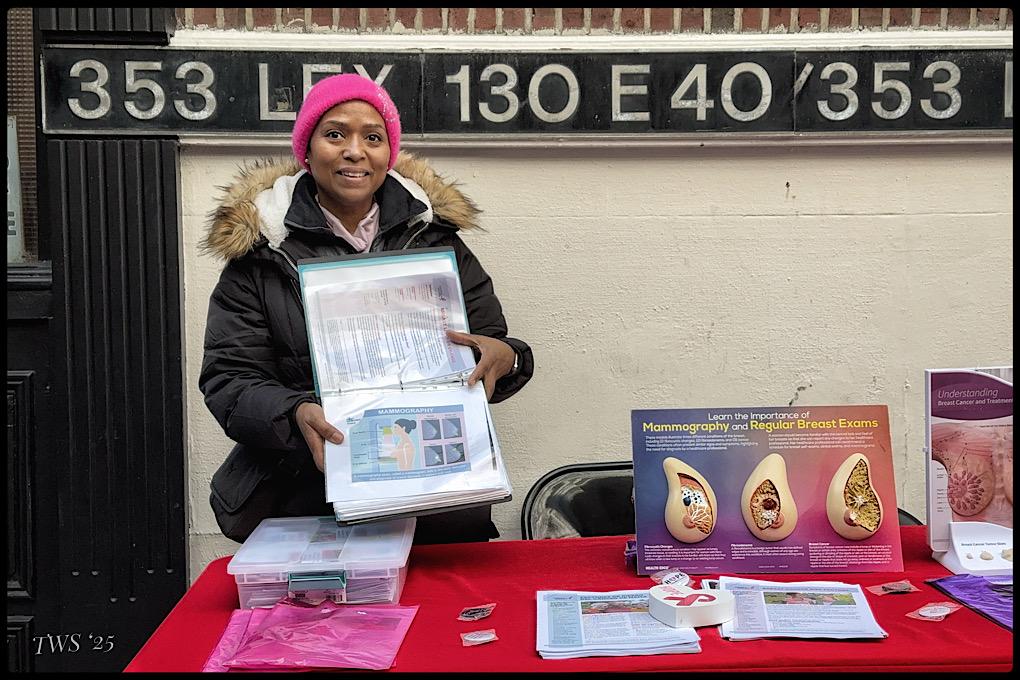While the American Italian Cancer Foundation bus regularly visits far-flung corners of the city in its mission to provide mammograms to New Yorkers free of charge, on Friday it was parked just steps from Grand Central Station on Lexington Avenue, a short walk from the majority of the city’s subway lines that pass through Midtown. The visit was organized with State Assemblymember Alex Bores, who understands the value of regular screenings. “My grandmother had breast cancer, my aunt had breast cancer, but because in both cases it was detected early, both of them survived and have lived long lives.”
Bores has worked with AICF before, and beyond getting rid of the logistical hassle, it was not lost on him that price is also a major motivating factor. “Affordability is most people’s top concern, so we like to provide free services where we can,” he told La Voce, listing others that his office has organized, like free legal services through the New York Legal Assistance Group. Mammograms can cost around $400 out of pocket, or nearly double that for the state-of-the-art 3D scans like the ones provided on the mammogram bus.

Assisting Bores and the AICF on Friday was Noralie Nuñez, Breast Outreach Coordinator for Weill Cornell Medicine and New York Presbyterian hospitals. “The majority of breast cancer survivors, they find their own lump,” she told La Voce, a fact that she related to people getting screenings to impress upon them the importance of examining themselves physically throughout the year between mammograms.

Like Bores, Nuñez has a family history with the disease, losing her mother to breast cancer two years ago at the age of 78. She said that one of the biggest misconceptions is that one ages out of being at risk: “[when] they are of age they usually say ‘oh I don’t have to do it anymore,’ but no, even at the age of 74, women should be doing their mammograms.” She has been collaborating with AICF since 2020, and appreciates how working with the organization across the city helps her own outreach efforts: “it’s been great because I go somewhere, and I meet somebody, and they say “can you come to my organization?”
AICF’s mammogram bus is a one-of-a-kind project in New York City, as the only other nonprofit running mobile cancer screenings unfortunately had to discontinue the practice. As costs continue to rise along with rates of cancer diagnoses, Noralie sees AICF’s mobile unit as a necessity more than a convenience for New Yorkers: “New York City is predominantly depending on the American Italian Cancer foundation to get these mammograms done for the tri-state area, and I’m grateful for them.”












